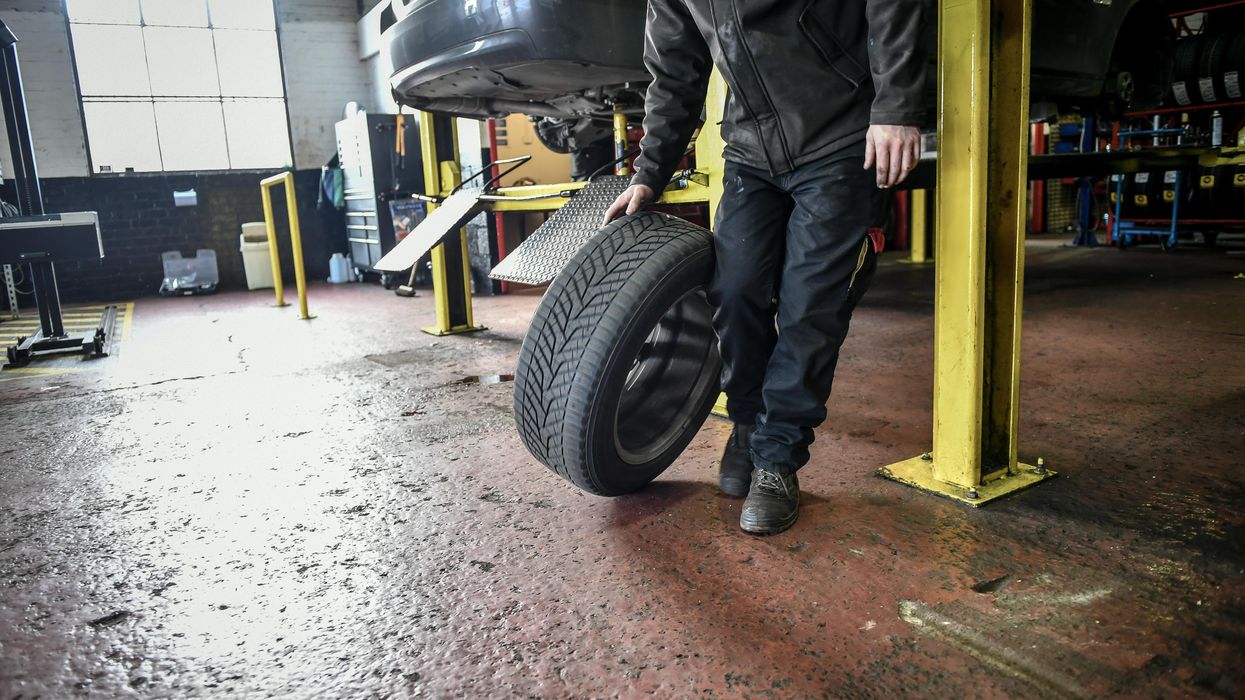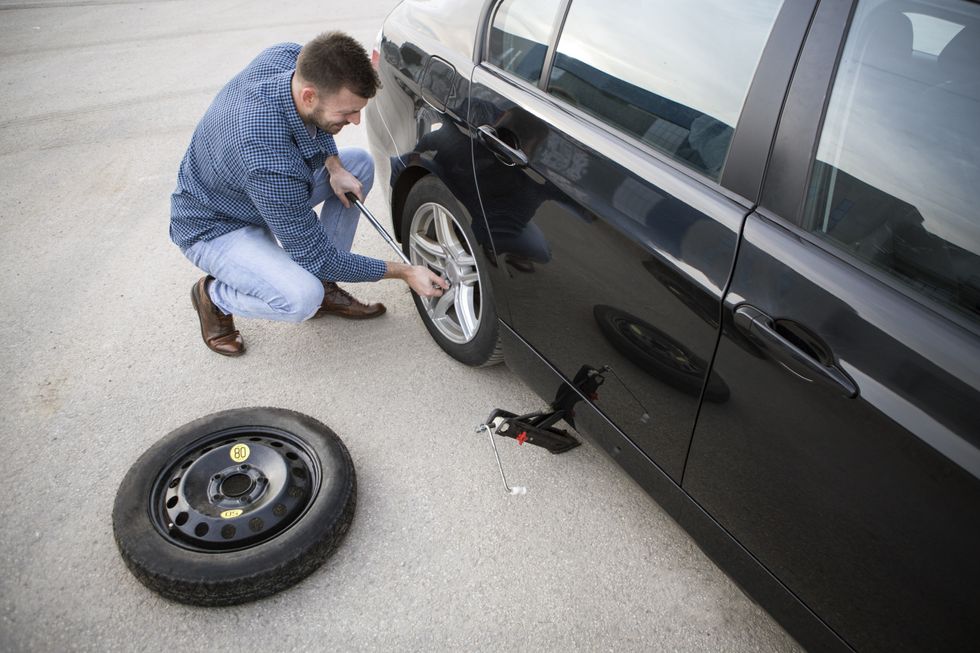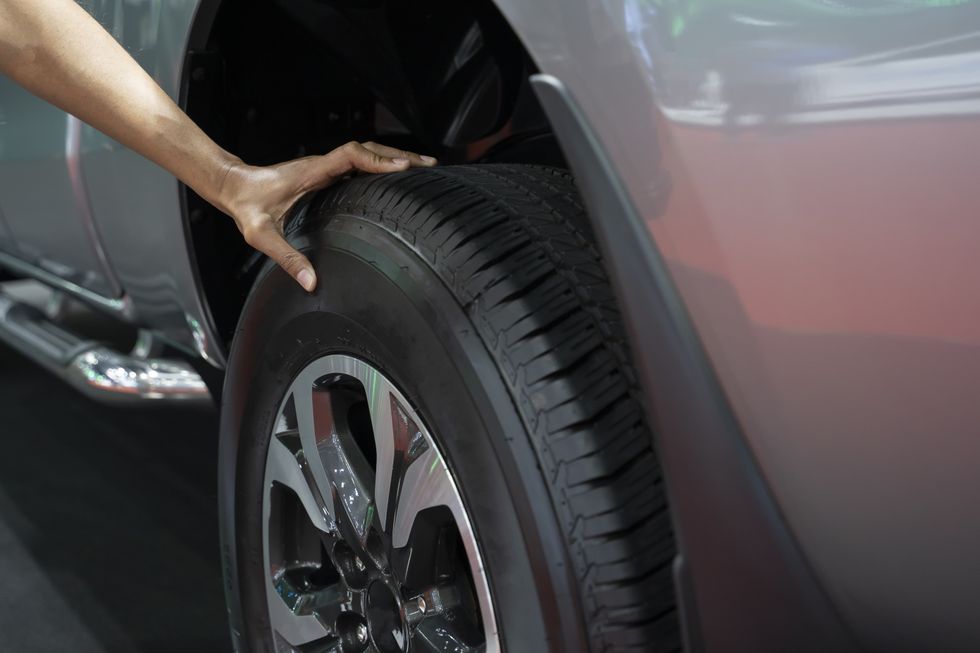New driving law could see motorists save billions on tyres every year

European regulation R117-04 came into effect this month
| PA
400 million tyres are removed prematurely every year
Don't Miss
Most Read
Drivers could save billions of pounds on tyres each year through the rollout of new regulations.
The European regulation R117-04 came into force this month and aims to guarantee higher safety standards on roads.
The legislation introduces new tests designed to improve road safety by promoting “reliable tyres” until they reach the legal tread depth of 1.6 mm.
The additional transparency measures are seen as “even more essential”, as some tyre performances deteriorate over time.
Do you have a story you'd like to share? Get in touch by emailing motoring@gbnews.uk
 Driving with faulty tyres can see motorists get slapped with hefty fines | GETTY
Driving with faulty tyres can see motorists get slapped with hefty fines | GETTYThe regulation was backed by one of the largest tyre manufacturers in the world Michelin, which has sparked concerns as to whether the UK will roll out a similar measure.
The wet braking test part of the regulation measures the distance required for a vehicle to decelerate from 80 to 20 kph [50 to 12 mph] on a standard road surface with a water height of one mm.
In addition to these specific points, the test includes other precise parameters, such as the road grip coefficient or the ambient temperature.
Tests on wet ground while already in force, are widely recognized by the tyre industry, but the new measures also test them in more extreme situations that a motorist may encounter on the road.
According to a study by Michelin, 50 per cent of tyres are removed before reaching a residual depth of 3 mm.
The regulation will influence the demand for new tyres in Europe, which could be reduced by 128 million units per annum, leading to a reduction in CO2 emissions of approximately 6.6 million metric tons.
On a global scale, the data found that 400 million tyres are removed prematurely every year.
Through the changes, 35 million metric tons of CO2 could be saved while keeping tyres for longer will also protect consumers’ purchasing power.
Michelin estimated that nearly £5.8billion could be saved by European motorists every year.
The legal tyre tread depth limit for cars in the UK and Europe is 1.6mm across the central three-quarters of the tyre.
By law, the tread depth must meet this minimum requirement across its complete circumference.
Driving below the legal tread limit could leave motorists stuck with a hefty fine and invalidated insurance.
LATEST DEVELOPMENTS:
- Petrol and diesel drivers urged to make 'significant savings each year' with filling station technique
- Older drivers vow to never buy an electric car over belief 'they aren't needed to combat climate change'
- DVLA 'really pushes the boat out' with new personalised number plates ahead of update this week
 Tyres need to have a 1.6mm tread depth | GETTY
Tyres need to have a 1.6mm tread depth | GETTYThe RAC detailed: “If you are involved in an accident and the car you are driving has illegal or bald tyres, you should be aware of the consequences.
“Any insurance claim as a result of an accident could be invalidated, so potentially your insurer won't pay out any money for any repairs needed to your vehicle.”










